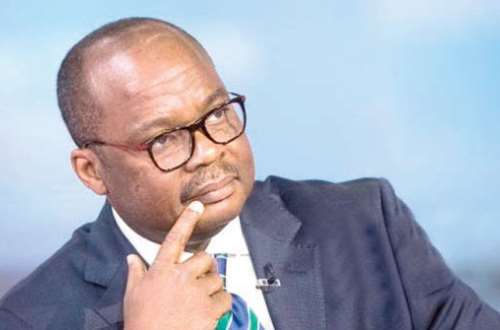The financial sector cleanup in Ghana, initiated between 2017 and 2020, aimed to stabilize and restore confidence in the industry. This period witnessed the closure of numerous financial institutions, including banks and specialized deposit-taking institutions, due to insolvency and regulatory breaches. While the exercise achieved significant progress in consolidating the sector and strengthening regulatory oversight, it left unresolved issues, particularly regarding depositor claims in the savings and loans sector. This incompleteness continues to pose challenges to the overall stability of the financial landscape and necessitates further action to finalize the cleanup process. The Governor of the Bank of Ghana, Dr. Ernest Addison, has highlighted the ongoing struggles of several savings and loans companies, emphasizing that the cleanup remains an unfinished agenda.
Dr. Addison’s revelations underscore the precarious situation facing several savings and loans companies, even though their licenses are yet to be revoked. The crucial obstacle hindering the revocation process and the subsequent payment to depositors is the government’s inability to allocate the necessary resources. This financial constraint has created a logjam in the final stages of the cleanup, leaving depositors in limbo and raising concerns about the potential long-term impacts on the financial sector. The government’s fiscal challenges have prevented it from fulfilling its commitment to refund depositors of the failed savings and loans companies, further delaying the complete resolution of the crisis. This delay perpetuates uncertainty within the financial sector and emphasizes the urgent need for a sustainable solution to address the outstanding depositor claims.
The Bank of Ghana Governor revealed that discussions with the International Monetary Fund (IMF) have included the issue of securing funding to finalize the savings and loans cleanup. The government is exploring avenues to obtain the necessary budgetary resources to fulfill its obligations to depositors. The expectation is that once the budgetary constraints are addressed, perhaps through an IMF program or other financing mechanisms, the government will be in a position to revoke the licenses of the remaining troubled savings and loans companies and initiate the payment process for depositors. This resolution is critical not only for the affected depositors but also for the overall stability and credibility of the financial sector.
The initial estimated cost of the government’s intervention in the financial sector cleanup was GHS 16.4 billion, excluding interest. This figure, however, has been subject to revision, with Vice President Dr. Mahamudu Bawumia later suggesting a potential total cost of GHS 25 billion. The significant financial commitment required for the cleanup underscores the magnitude of the challenges faced by the government in resolving the crisis. The substantial increase in the estimated cost further complicates the process and adds to the urgency of securing adequate funding to complete the cleanup and protect depositors’ interests. The variance in estimated costs highlights the complexity of the financial sector cleanup and the need for accurate assessments to effectively address the outstanding issues.
The unfinished cleanup of the savings and loans sector represents a persistent challenge to Ghana’s financial stability. The unresolved depositor claims and the financial burden on the government continue to hinder the complete resolution of the crisis. The government’s ongoing dialogue with the IMF signifies its commitment to addressing the issue and securing the necessary resources to finalize the cleanup. The timely resolution of this issue is crucial for restoring full confidence in the financial sector and safeguarding the interests of depositors. Furthermore, it is essential for maintaining the stability of the broader financial system and preventing any potential spillover effects into other sectors of the economy.
The ongoing struggles of the savings and loans companies, coupled with the government’s fiscal constraints, underscore the complexity of the financial sector cleanup. The delay in resolving the outstanding depositor claims undermines confidence in the financial system and necessitates a swift and decisive action to address the issue. Securing adequate funding, whether through the IMF or other sources, is paramount to completing the cleanup process, refunding depositors, and restoring stability to the financial sector. A comprehensive and well-funded strategy is crucial to mitigate the long-term impacts of the crisis and ensure the sustained health and resilience of Ghana’s financial system.














